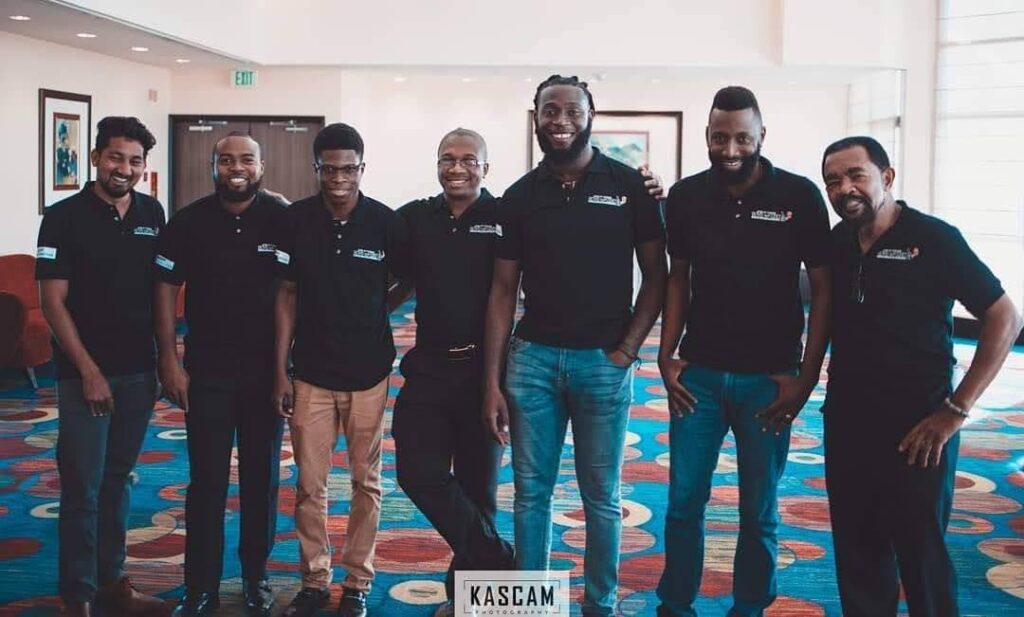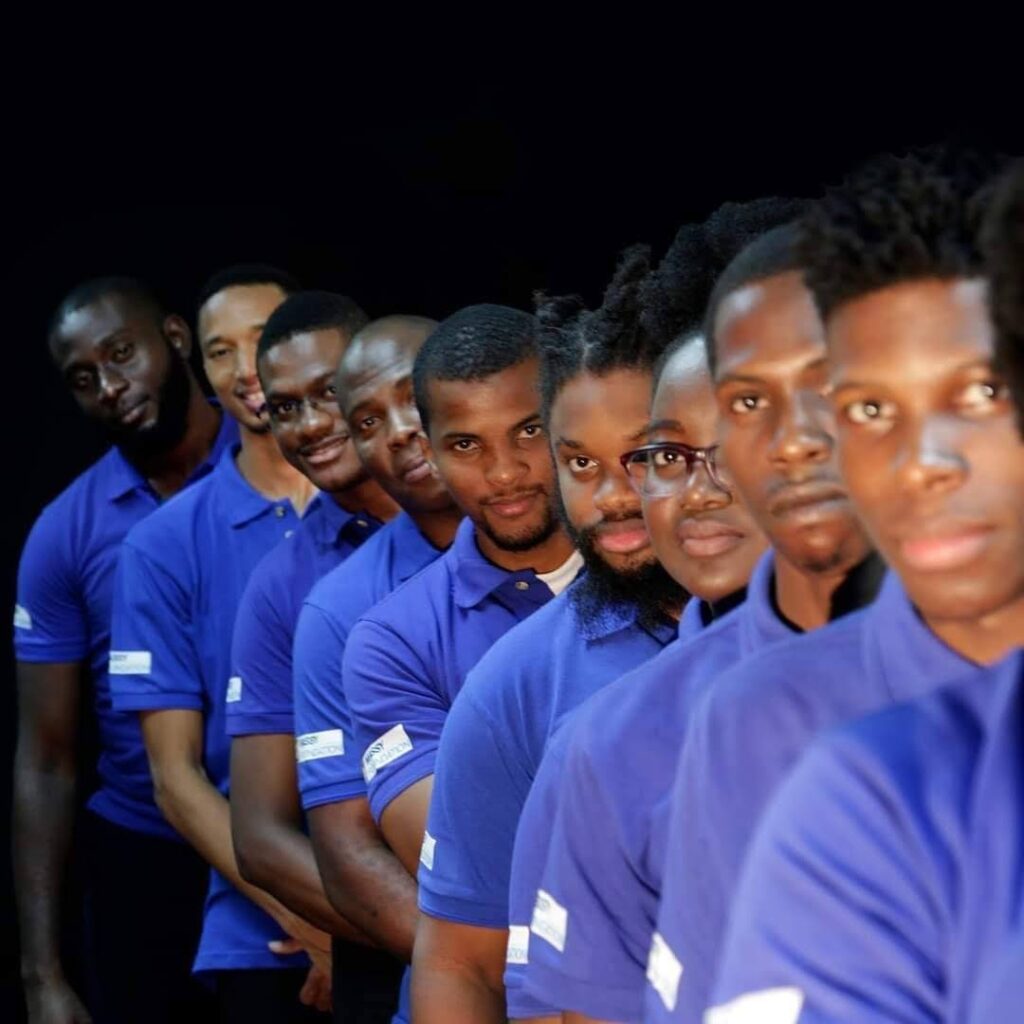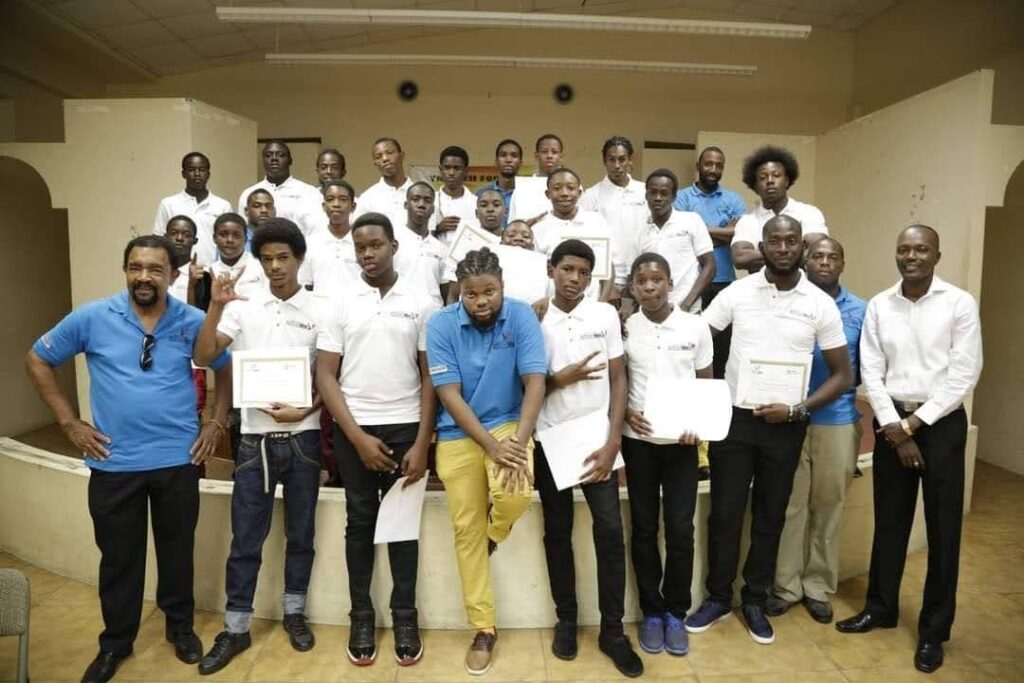Boys to Men: Kasel Campbell's mission to uplift Tobago youths

WHEN Kasel Campbell learnt that there are gangs operating in several communities in Tobago, he was not surprised. But he was taken aback by the fact that at least 20 were identified.
Former head of the Tobago Division ACP William Nurse revealed the figure during a recent interview with Newsday, saying that 70 per cent of the island’s most notorious criminals lived in the Les Coteaux/Golden Lane area.
Nurse alluded to a report published by the intelligence unit which said that other smaller gangs exist in Lambeau and Government House Road.
The ACP said he would love to see specific steps taken to “uproot them, find them wherever they are and prosecute them to the fullest extent of the law.”
Campbell, 27, told Sunday Newsday gangs exist because they provide something young men crave – value and position.
“They want a hallmark to measure their growth, a sense of safety and belonging,” he said.

“I think as long as we don’t recreate avenues that encapsulate and cultivate what these men subconsciously crave, young men would continue to gravitate to these gangs as opposed to other positive social groups.”
Campbell is a change leader with Rites of Passage: Boys To Men programme (BTM), a group which offers a forum for young men to openly share their anxieties and aspirations.
He is also a familiar face on Tobago’s theatre landscape, having been a member of the non-profit performing arts company THETA since its inception in March 2012. THETA is an acronym for Transforming, Healing and Empowering through the Arts.
With its vision to be “a premier theatre company in Tobago,” THETA continues to be a fixture at many cultural and social events on the island.
The group has performed at events hosted by the THA Division of Health, Wellness and Social Protection and the Indigenous Creative Arts Network (ICAN).
Just three weeks ago, the THETA also did an emotional piece at a forum titled GBV & ME: Insights and Solutions from the youth of the region.
The event, hosted by the ICAN, was held at the Prime Minister’s official residence, Blenheim, Tobago. It was held in collaboration with the United Nations Spotlight initiative.
Apart from gender-based abuse, THETA has tackled several other gritty issues in its presentations over the years, including crime, bullying and sexuality.

Its work includes workshops, training in the performing arts, plays and arts-based interventions for social and behavioural change.
Campbell said his involvement in THETA, which currently has about 25 active members, prepared him for the role he now holds in BTM.
“The group has had a profound impact on my life… working in theatre can heal and open you up to the possibilities within yourself.”
Funded by the Massy Foundation, the BTM programme was founded in Trinidad in 2005 under the stewardship of Ian Jeffers. It is primarily a developmental initiative aimed at building leadership skills in young men, usually between the ages of 14-21, over periods of eight weeks.
The programme, in part, draws on the skills and experiences of village elders in guiding the sessions, which cover family, relationships, self-esteem, conflict resolution, spirituality, masculinity among other areas.
Campbell said since joining the BTM, he has had a first-hand account of the challenges confronting young men in Tobago.
In an age where many of them are often regarded as under-achievers, brash and insensitive, Campbell said in his experience, young men are simply seeking approval and acceptance. He added this has been the most telling truth of his involvement in the group.
“Young men generally seek approval for every action they take. And I mean every action. This soon becomes their validation for their sense of identity and who they can identify with.”

For instance, Campbell recalled a young student once told him that he switched social groups because someone in the group he got “props” from was transferred to another school. The student, he said, felt like he became a different individual when that happened.
The young activist observed that many boys in the society are subconsciously applying themselves to small groups to seek what they deem to be rites of passage in order to become men.
But he believes more groups geared towards guiding them through the validation they seek can be created.
“Groups with the intent of a process of mental and social development, groups that feel like family and brothers, groups with some form of graduation system so they can hallmark their individual development.”
How do young men see themselves in Tobago?
“I honestly don’t think they see themselves half the time because they lack the individuals to mirror. I believe to see yourself it requires a mirror.”
Campbell, a public servant, became involved with the BTM in 2015. He was among a group of young men from his native Buccoo and other neighbouring communities.
The meetings were held at the Buccoo Community Centre during which participants went through a series of frank discussions on a range of topics.
The former Signal Hill Secondary student said the sessions, led by Trinidad-based tutors, were thought-provoking.
“There was always a question from the public as to what kept us coming back to the centre every week and funny enough the answer was just so simple, ‘The food.’ Boys to Men has a standing mantra, ‘Food for belly and then food for thought.’”
He went on, “As a participant, this group was surprisingly impactful in ways I was oblivious to at first but quickly became aware of. Prior to the programme's introduction, there were only two places where all the guys in the village between 13-23 met at the football field or the ‘bayside’ and our conversations involved a number of recurring topics, current day activities, girls, sports and plans for any upcoming holiday or season.”
The BTM’s sessions, Campbell said, gave participants a space to have different conversations.
“It is a space to have some answers to questions I asked myself daily without even realising it because before I wasn't seeing a space to ask them. The men I usually interacted with never created the opportunity.”
He said a graduation ceremony was held for the participants at the end of the eight weeks.
“This was mind-blowing. My family came to celebrate me becoming a man. There was something so uplifting in that day.”
But Campbell said the participants yearned for more.
“They kept asking, ‘When are we doing this again?’ It just felt amazing being a part of an experience where we get to laugh with comrades, be grilled by our own comrades, learn and not be judged or have a fear of being disciplined or ridiculed.”
Saying BTM is a staple in his life, Campbell recalled he got a white polo jersey and certificate after graduating from the programme in 2015. He said in 2016, he received a blue polo T-shirt after becoming certified in leadership.
A year later, Campbell was tasked with conducting the sessions, earning him a solid black polo T-shirt.
He has since been responsible for the development of BTM sessions in Tobago.
“This process has helped so much in my everyday life. It has encouraged me to take lead in the many groups I'm in and to gain that sense of belonging that I innately craved for.”
One such group has been the THETA, which is led by teacher Olimall Gordon-Holder, cultural activist Jared Prima and sexologist and Newsday Tobago columnist Onika Henry.
“I have always told people I am very passionate about teamwork, something about the rise or fall as a team always creates a fire within me, it allows me the opportunity to be adventurous, try new things and search for solutions.”
Campbell said the THETA provides an avenue for actors to fully explore their talents and evoke emotion among audiences.
Apart from transforming, healing, empowering, educating and entertaining through the arts, the group also seeks to define, develop and promote a theatrical form that is inherently Tobagonian while providing a programme of quality educational experiences in all aspects of theatre for youth and adults.
The THETA has received funding from the Canadian High Commission for its work in preventing sexual violence.
“Our company and its performances have been well received by all audiences, here in Tobago and further afield.”
Campbell, who describes himself as "a bit of a comedian," said within the past three years he has been channeling his energy into photography and building relations through his clients. He said he also wants to create a podcast.
Campbell regards his work in the BTM as extremely important.
The ever-growing group, which has 22 core leaders, meets at the Signal Hill Secondary School on Thursday mornings and at the amphitheatre of the Scarborough Library.
The BTM is also planning for a football tournament in honour of a member who passed away some time ago.

Comments
"Boys to Men: Kasel Campbell’s mission to uplift Tobago youths"